5 Questions to Ask Before Investing in Real Estate
Cochrane Real Estate Investing
Real estate investing is often seen as a golden pathway to building wealth and achieving financial independence. But with significant rewards come substantial risks and responsibilities. For first-time investors, the excitement of jumping into the real estate market can sometimes obscure the importance of preparation.
Before making your first investment, it’s essential to evaluate your goals, resources, and tolerance for risk. The five questions outlined below will help you determine whether you're ready to take the plunge—or if it's time to refine your plans.
1. What Are My Investment Goals?
A solid foundation for real estate investing begins with understanding your "why." What do you hope to achieve? Are you seeking a steady stream of passive income through rental properties? Is your goal long-term property appreciation? Or are you looking to buy, renovate, and sell for a quick profit?
Your goals will influence every decision you make, from the type of property you pursue to its location and the strategy you implement. For example, a long-term rental strategy will focus more on stable markets with strong tenant demand, while a fix-and-flip strategy will prioritize neighborhoods ripe for growth.
Pro Tip: Be specific and measurable in your goal-setting. “I want to generate $2,000 in monthly rental income within three years,” is much more actionable than “I want to make money from real estate.”
Reflecting on these objectives will give focus to your investment strategy. Rather than chasing random opportunities, you’ll be building toward clear milestones that align with your financial ambitions.
2. Am I Financially Prepared?
Investing in real estate requires capital—often more than novice investors anticipate. Beyond a property’s purchase price, you’ll need to budget for closing costs, maintenance, repairs, taxes, insurance, and potential vacancies. It's also critical to account for any unexpected expenses that may arise.
Do you have a stable income? A savings buffer? A good credit score that can open doors to attractive financing options? Taking an honest look at your financial health is crucial before signing on the dotted line.
Pro Tip: Consult a financial advisor or mortgage specialist to evaluate exactly what you can afford. They'll help you assess your budget, explain loan options, and estimate upfront costs.
Also, be realistic about your risk tolerance. Real estate markets can fluctuate unexpectedly, and not every investment pays off right away. Ensure you're prepared to withstand periods of uncertainty.
3. Do I Understand the Cochrane Real Estate Market?
Understanding the real estate market is non-negotiable. Even if a property looks like the deal of a lifetime, its true value lies in its surrounding location and market trends. A solid return on your investment depends on having a nuanced understanding of property values, demand for housing, and future growth potential.
Before you invest, research local trends thoroughly. Are property values increasing? What's the current vacancy rate? Is the demand for rental properties sustainable? And what are the economic drivers in the area—proximity to good schools, public transportation, employment hubs, or amenities?
Pro Tip: Spend time analyzing specific neighborhoods rather than looking at broader market trends. For example, a city might experience slow growth overall, but certain pockets could be thriving due to new developments or infrastructure projects.
If the market intimidates you, consider joining real estate forums, attending local investor meetups, or working with a Realtor who specializes in investment properties.
4. How Hands-On Do I Want to Be?
Real estate isn’t a one-size-fits-all investment. Some strategies, like buying and managing rental properties, require active involvement. You'll need to handle tenant requests, oversee maintenance, and potentially mediate conflicts. Other strategies, such as investing in Real Estate Investment Trusts (REITs) or crowdfunded platforms, are more passive and better suited to hands-off investors.
Ask yourself how much time you're willing and able to dedicate to your investment. Are you comfortable being a landlord, or would hiring a property manager fit your lifestyle better?
Pro Tip: If you're considering short-term rentals (like Airbnb), understand these typically require greater involvement than traditional tenancies. While short-term rentals may offer higher cash flow, they demand higher upkeep and frequent tenant interactions.
Understanding your own preferred level of involvement will help you narrow down suitable investment strategies and avoid unnecessary surprises down the road.
5. Do I Have a Team of Professionals?
The phrase "real estate investing is a team sport" couldn’t be more true. From purchasing your first property to managing it—and possibly selling it down the road—having a strong team of professionals by your side will make the process far smoother and more successful.
A solid support team might include a reliable Realtor who knows the market, a knowledgeable contractor for renovations, a real estate attorney to review contracts, and an accountant to help with financials and taxes.
Pro Tip: Building relationships with local experts is key. Not only will they help you avoid costly mistakes, but their market-specific insights can significantly increase your chances of success. For example, a Cochrane Realtor in your target area could tell you which neighborhoods are primed for growth or where rental demand is strongest.
Don't underestimate the value of a seasoned mentor, especially if you're new to real estate investing. A mentor can provide personalized advice, share their experiences, and point out potential pitfalls that may not be obvious to beginners.
Laying the Foundation for Success
Real estate investing offers incredible opportunities—but it’s not without challenges. By thoughtfully answering these five questions, you’ll be equipped to make informed decisions that align with your goals, risk tolerance, and lifestyle.
You don’t need to have all the answers right now. Whether you're still refining your investment strategy or simply researching markets, what's important is taking that first step. Building wealth through real estate is a marathon, not a sprint—but with preparation, persistence, and the right team, you’ll reach the finish line with lasting rewards.












